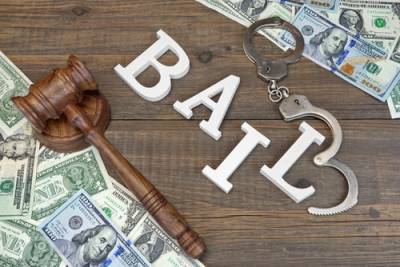Are Violent Crimes More Likely to Have High Bail Amounts?

When a person is arrested for a violent crime, it is typical for bail to be ordered afterward. Bail is an amount of money that a person will be required to pay before they can be released. The purpose of bail is to ensure that a person will return to court when required during a criminal prosecution while also following other restrictions that have been put in place. The amount of bail and the conditions that will apply to a person can vary depending on the severity of the crime and the jurisdiction in which it occurred. By understanding the types of violent crimes that may result in higher amounts of bail and more severe restrictions, a person who has been arrested can determine their best options for obtaining a bail bond and getting released quickly.
Bail and Offenses Involving Violence
There are several different factors judges may consider when determining the amount of bail that must be paid. In general, the amount of bail may increase based on the person's criminal record and their history of arrests or convictions. If a person had previously been convicted of crimes that may indicate that they may present a safety risk to the community, they will likely be required to pay higher amounts of bail.
The judge will also consider whether a person is a flight risk. When someone is released from custody, they will be required to appear in court during their criminal case. Multiple types of hearings may be required, and a trial may eventually be held. In some cases, defendants may attempt to avoid punishment by fleeing the area and refusing to appear because they are certain they will be convicted. If this is an issue, bail may be set at a higher amount in order to encourage a person to appear when required. To determine whether a person is a flight risk, a judge may look at their ties to the community, such as whether they have worked for an employer on a regular basis, whether they own or rent a home, and whether they are involved in community organizations and events, such as regularly attending church, playing on local sports teams, or participating in charity work.
While the issues described above will likely play an important part in bail considerations, the offense(s) the person has been arrested for are often the primary factor considered. If a person has been charged with an "offense involving violence," this is likely to result in a higher amount of bail, especially if they are accused of engaging in violence against a police officer. This means that a person who is accused of resisting arrest or assaulting a police officer during an arrest will usually be required to pay higher amounts of bail than a person charged with a non-violent offense. In some cases, bail may be denied altogether because of the allegations of violent crimes, which may include murder, felony assault, aggravated assault, sexual assault, kidnapping, injury to a child or elderly person, aggravated robbery, indecency with a child, continuous violence against the family, or violation of an order of protection in a family violence case.
Contact a Dallas Bail Bondsman
Paying a high amount of bail may be difficult, and people who have been charged with violent crimes may worry that they will have to stay in jail throughout their criminal case. Fortunately, a bail bond will allow a person to get released, and they will usually only be required to pay 10 percent of the amount of bail that has been ordered by a judge. At Doc's Bail Bonds, we can help you determine the most affordable options for paying this 10 percent, and we will make sure the payments are made to the court correctly so you can get released as soon as possible. To learn more about how we can assist in getting you released, contact a Collin County bail agent at 214-747-4110. We are available 24 hours a day, seven days a week to help you address issues related to bail.
Sources:
https://statutes.capitol.texas.gov/Docs/CR/htm/CR.17.htm#17.15
https://statutes.capitol.texas.gov/Docs/CR/htm/CR.17.htm#17.03










